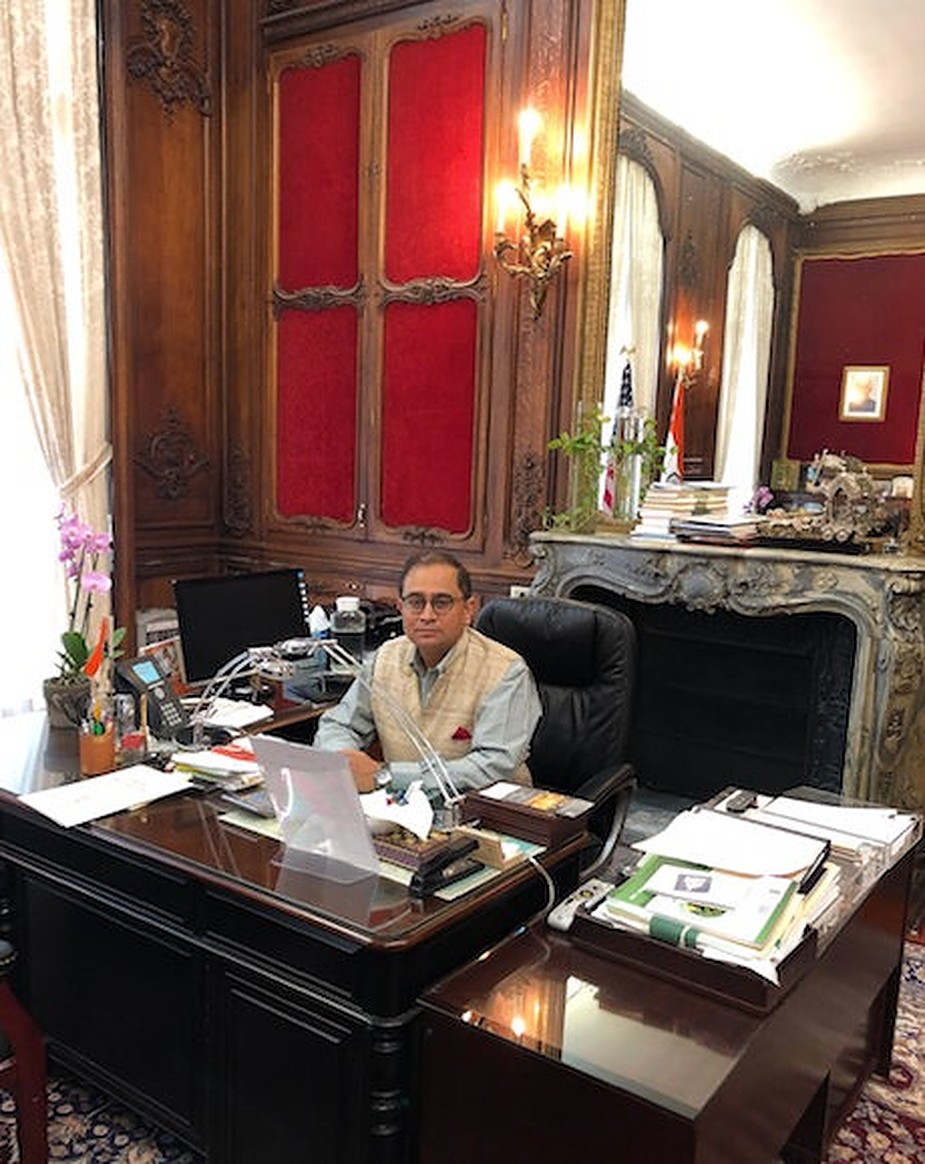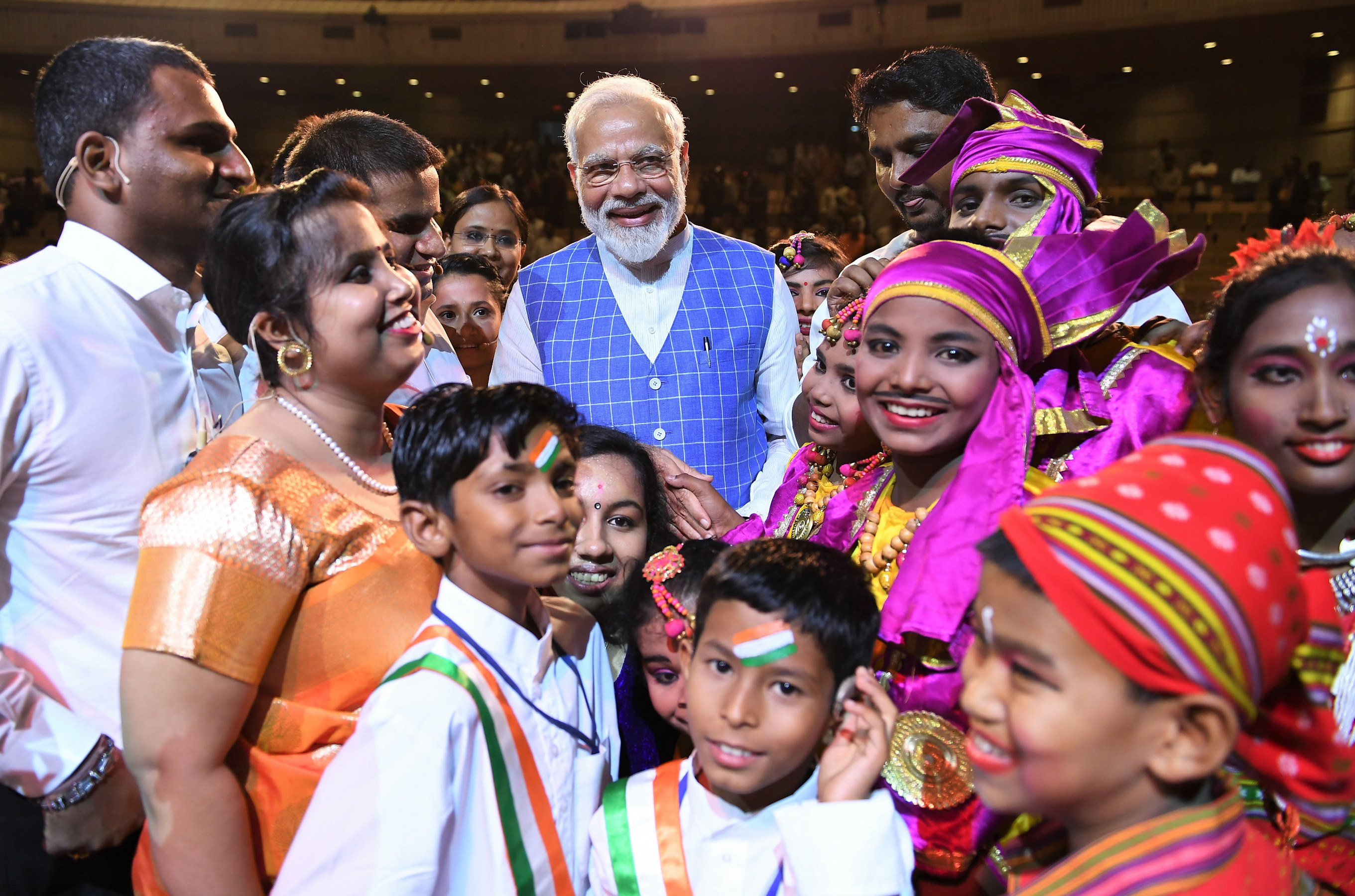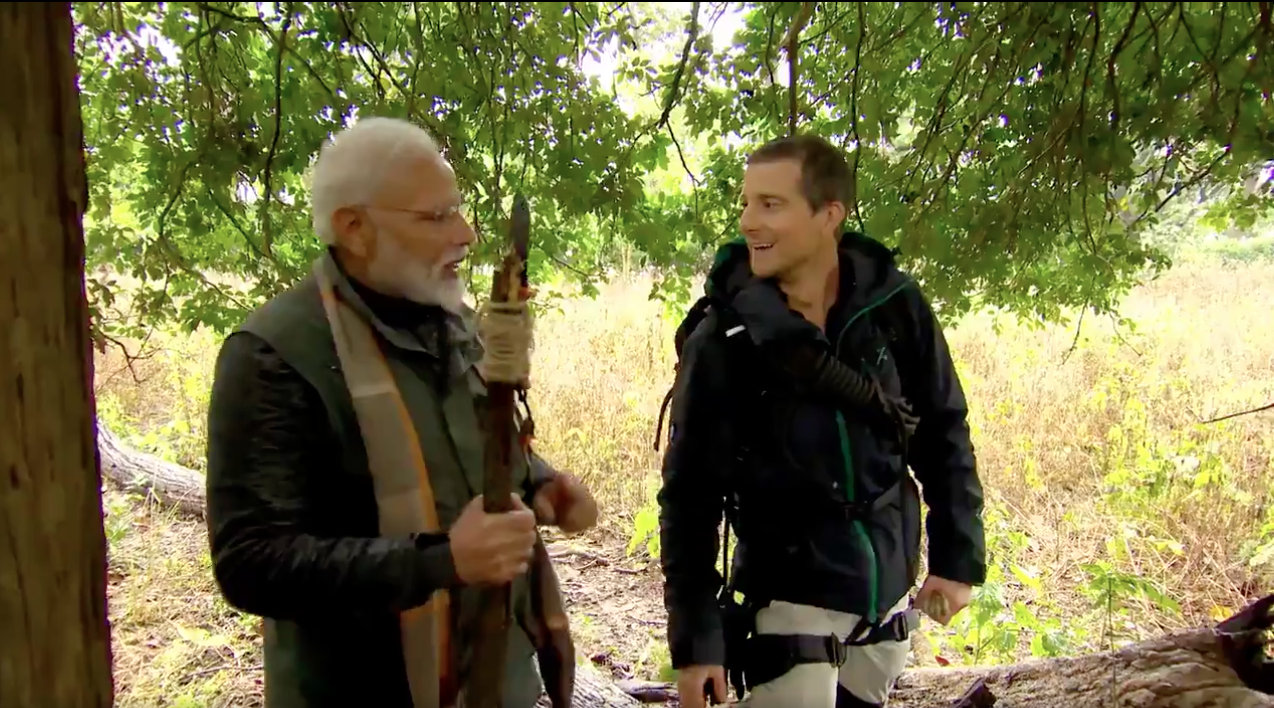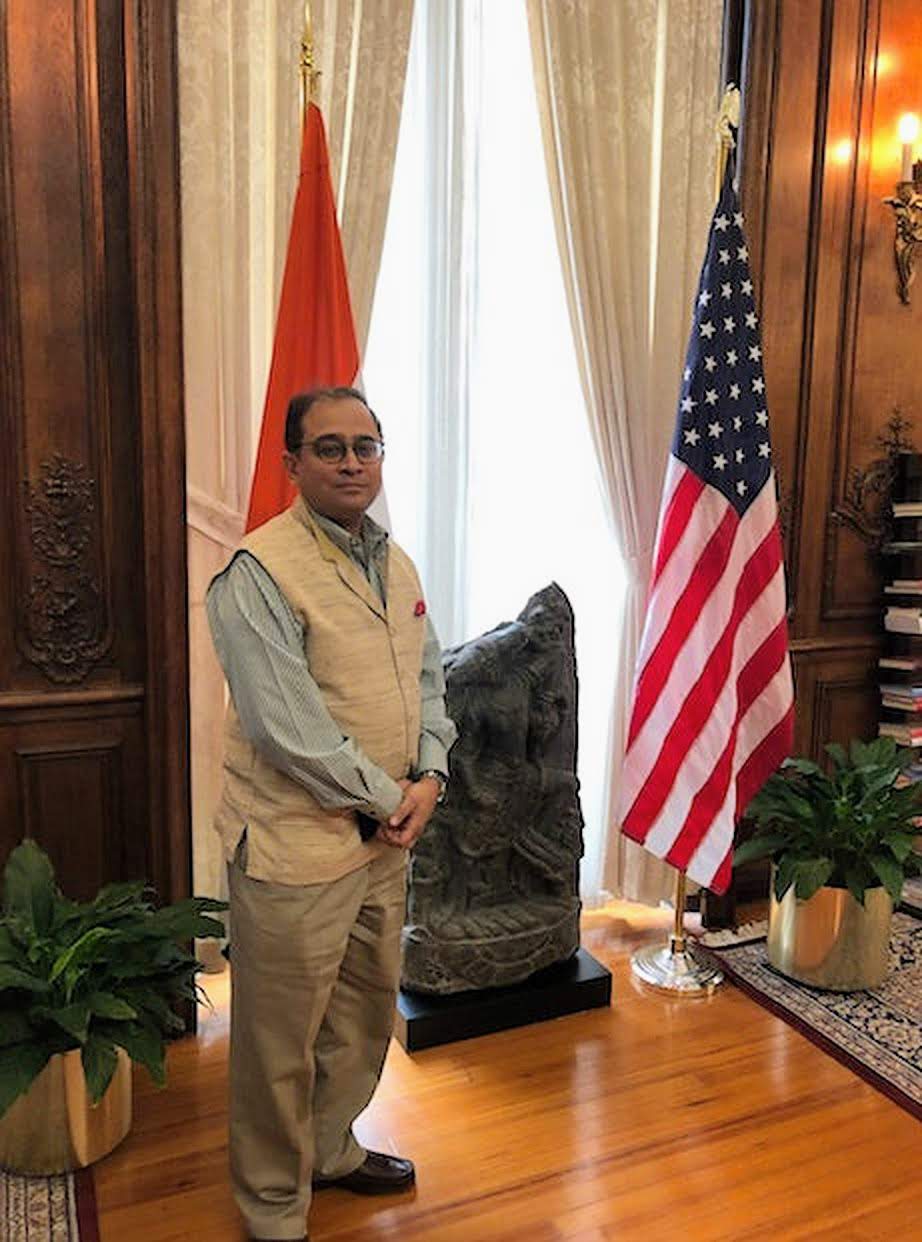Emboldened by a spate of reforms, a USD 5 trillion Indian economy by 2024 is inevitable and there is nothing that can stop the country from becoming one of the top three largest economies in the world, said the country’s Consul General in New York Sandeep Chakravorty in an exclusive interview with Connected to India.
“It (a USD 5 trillion economy) is going to happen and nobody can stop us,” said Chakravorty. “If the GDP, which is already almost at USD 3 trillion, grows at 8% or higher we could see us achieving that goal even earlier than 2024. The only obstacle, if any, in the way is a possible world-wide recession but that is very unlikely.”
A USD 5 trillion nominal GDP would catapult India to the top three position of leading economies in the world ahead of Japan but below the US and China, based on today’s available data.
This optimistic forecast from a seasoned bureaucrat with extensive global diplomatic experience or simply put a man with a finger on the pulse of the overseas Indian community in the business capital of the world, is based on evidence of growing interest towards India after Prime Minister Narendra Modi’s resounding reelection to a second five-year term.
Chakravorty is sensing rising interest among overseas businesses, governments and the Indian diaspora to engage with India and contribute to its economic growth, encouraged by its political stability and the government’s multi-faceted policy approach.
Modi’s first five-year term focussed a lot on economic growth but he has pushed for a more inclusive approach – with policies that are aimed at the country’s massive rural population many of whom are still struggling to get basic amenities like drinking water, electricity, education, cooking gas, access to banks and health facilities.
In the second term he is expected to implement even more bolder economic reforms which will put India on a higher growth trajectory, said Chakravorty.
According to the United Nations, in the last 10 years some 271 million people in India out of an estimated 640 million previously below the poverty line were no longer multi-dimensionally poor – a broader indicator that was simply not based on income but looks at health and nutrition, access to clean water or electricity and education.
Modi’s government is still driven by the objective of pushing economic growth to new heights – having announced labor reforms, changes to the income tax and bankruptcy law – but the increased emphasis on the 370 million odd-people still below the poverty line, would give India that much-needed impetus to become one of the leading economies in the world, said Chakravorty.
“It is a wise decision to focus on the rural sector and this initiative to ensure rural India has access to the basic amenities is the change in the narrative and the reason for the growing interest towards India,” said Chakravorty.
“If we had just focussed on GDP growth and not tried to take the whole population along on that journey, we would have been accused of being elitist and that could have lead to social unrest…in a country with 1.3 billion people, everyone needs to feel they are getting a share of any broader economic prosperity,” said Chakravorty.
Indeed Modi’s government in his second term has come up with policies on tackling issues that were not even talked about to this extent before. Now there are policies being implemented to ensure every Indian has clean drinking water in a few years. Building of toilets and even provision of sanitary napkins (still taboo topics for cultural reasons in many parts of India) are now policy initiatives and there is pressure being put for their implementation.
Access to electricity, roads and broadly better infrastructure that improved connectivity between cities and rural parts of India are all being emphasised and is part of mainstream dialogue.
A draft National Education Policy was released during the first few days of the start of Modi's second term that focussed on overhauling the country’s education system and recently a council that determined admissions into medical colleges was suspended for being corrupt and inept. It was replaced by a board that was tasked with overhauling the medical education system in the country.
This level of decision-making is impressive said Chakravorty who has seen progress first hand during visits to Indian villages and talking to people living there.
“I have seen it during my visits to India where people in villages are happy about getting a house or a toilet and sanitary napkins are being distributed in schools. . .these topics used to embarrass people before and now it is part of the mainstream dialogue,” said Chakravorty.
The energy and charisma shown by the Prime Minister – who is set to appear in “Man vs Wild” building a raft in the jungle with British adventurer Bear Grylls, led a Yoga demonstration on Yoga Day and jet setting around the world meeting world leaders – was also injecting new vigor into the consulate which now has a bigger slate of responsibilities.
“Earlier the consulate’s main role was to provide consular services and promote India’s culture but now we do more than that and actively work towards building the country's image as a destination for investments, tourism, sourcing of technology and manpower,” said Chakravorty.
The Indian consulate’s office building in New York – the oldest in the US and one of the most iconic Indian government-owned properties in the world – now plays host to a number of business events, promotes Indian businesses and plays a mediator role even in trade disputes.
“We have tried to change the character of consulate to make it more accessible and responsive in line with a world where people need help immediately,” said Chakravorty.
Chakravorty was recently in the news visiting Swami Harish Chander Puri, a priest of the Shiv Shakti Peeth temple in Glen Oaks in Queens after he was attacked by a man who reportedly screamed “this is my neighborhood”. This proactive approach is in some sense rare and denotes the change in mindset.
Chakravorty is also seeing increased engagement with the US and an improvement in the understanding among foreign investors about the complexity of doing business in India.
“There is a better understanding of how things work and operate in India. Investors recognise things take time to move, which arguably should be expected in a vibrant democratic country like India. But the awareness is high that we need to move from being difficult to being friendly for business so that thought process is in place and steps are being taken to enforce that change rapidly,” said Chakravorty.
“Investors understand that the reforms, like changes to labor and bankruptcy law, announced recently would take time to take full effect and my discussions with business shows there is ample interest among them to be a participant in the current building phase,” he added.
Chakravorty is optimistic that India’s plan to divest stakes in public enterprises, which have had a poor response earlier, would this time around see solid interest.
“India’s fundamentals are strong, there is political stability and we have no disputes with anybody. And since we want to be a USD 5 trilllion economy, we are actively engaging with the world, and the world is engaging with us in a more substantive way. . .this time the response to divestments will be different,” he said.
India plans to raise a whopping INR 1.05 trillion (USD 14.4bn) in the fiscal year ending March 2020 by selling its equity stakes, even below a majority 51%, in a wide array of state-owned companies.
The government was also keen on involving all stakeholders – including Indians living overseas – to contribute to the economy more substantially and that could mean reforms on areas like voting in the next elections, said Chakravorty.
“There are efforts to legalize proxy voting wherein an overseas Indian could authorise a close relative in India to vote for them and I am optimistic about it,” said Chakravorty.
There are many who would like dual-citizenship made possible but that process was more complicated because it is not just about voting privileges but "the concern is that it would then allow an overseas Indian to run for office or even become the prime minister which is a sensitive issue,” he added.






